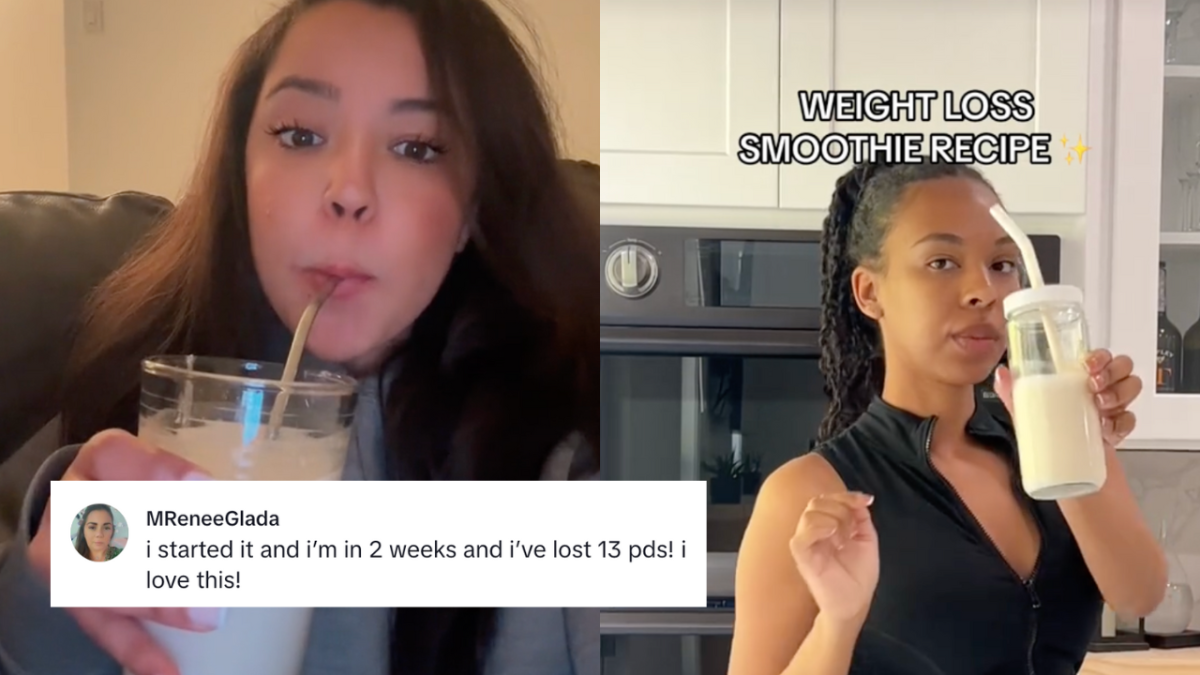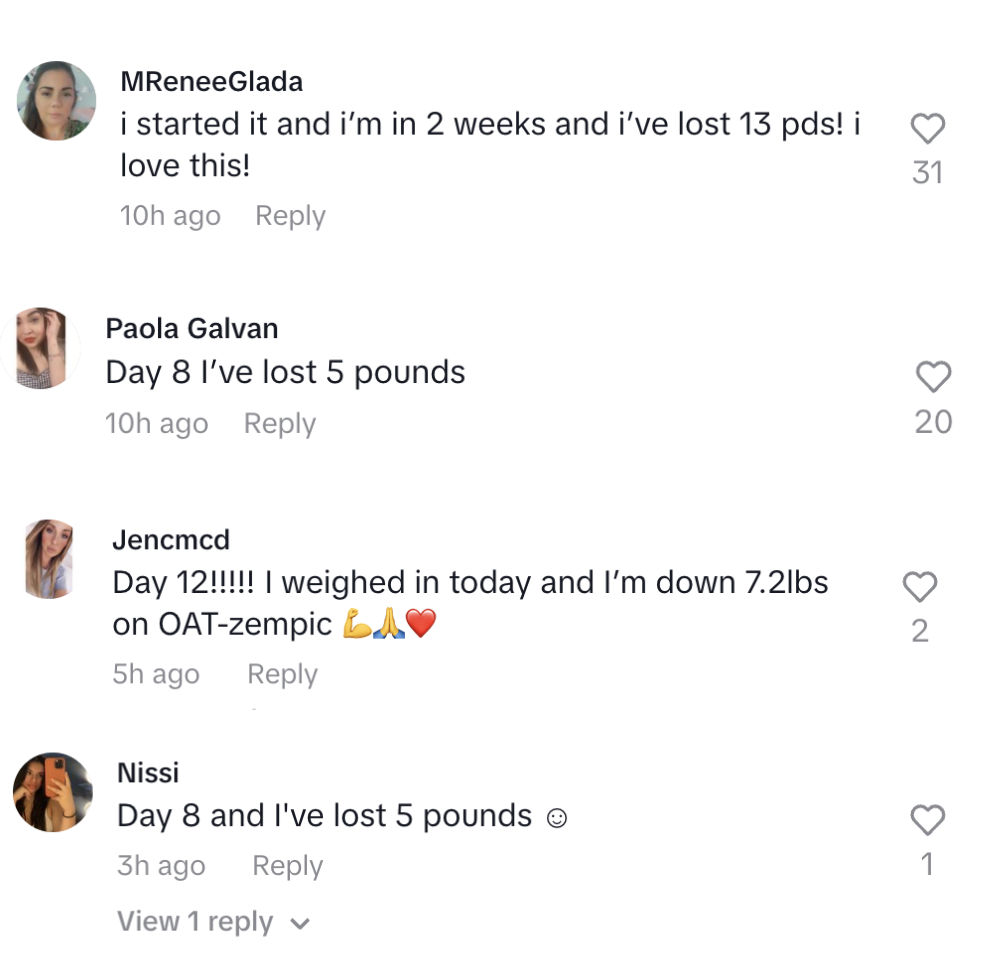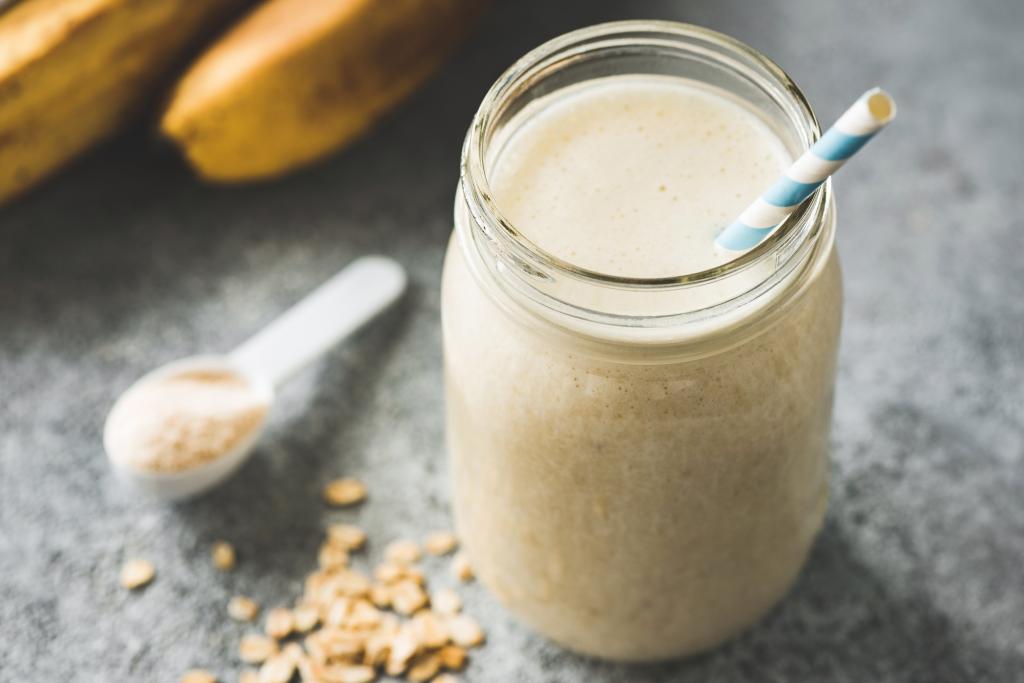
CONTENT WARNING: This article discusses disordered eating.
By now, you’re probably well aware of the infamous Ozempic — the medication that celebrities and influencers have heralded as a miracle aid to weight loss. But have you heard of “oatzempic” — TikTok’s “all-natural” alternative to the viral drug? We asked a dietitian about whether it’s legit, and, predictably, the trend is more sinister than it seems.
It often feels like every A-lister in Hollywood is spruiking Ozempic as the method to end weight problems. The drug, though originally used to treat diabetes, also acts as an appetite suppressant (among a host of other unsavoury side effects).
Unsurprisingly, the public response to Ozempic for weight loss has been less than favourable. The optics of an appetite suppressant which encourages starvation, rather than a nutritious weight loss diet, is not exactly cute — especially when you remember that the social media craze around Ozempic has left diabetic people struggling to find it.
This is where “oatzempic” comes in — fitness influencers and the like have claimed they’ve found a natural, healthy alternative to Ozempic, in the form of an oat smoothie that will deliver the same results but with none of the side effects or social stigma.
What is the “Oatzempic Challenge”?
The viral smoothie consists of half a cup of oats, one cup of water, the juice of half a lime or lemon, and cinnamon, which you’re instructed to have every morning for two months. Consuming this has been dubbed the “Oatzempic Challenge”.
Punters taking part in the challenge haven’t just been adding the smoothie to their rotation, but have instead begun using it as a meal replacement for breakfast, with some even recommending fasting after it. TikTokers who tried the challenge have claimed they’ve been able to lose 18kg in just two months, and the recipe has been lauded for being “healthy” because of its simple ingredients. But is this actually the case?

Dietitian for wellness app KIC Olivia Morrison reckons the oatzempic trend is dangerous because of its promotion of curbing your appetite (so, essentially, starving) and losing rapid amounts of weight quickly. After all, isn’t any diet that becomes a “challenge” to drop heaps of weight in just weeks a crash diet? Even one with oats in it?
“Anything with ‘challenge’ for food is generally going to be a big red flag for fad diet,” Morrison told PEDESTRIAN.TV.
“A healthy diet would be one where there’s no restriction on food groups. It includes mild, regular changes to your norm, smaller changes more regularly, and sticking to those habits as opposed to it being a quick fix. It’s more progressional.”

The oatzempic challenge, on the other hand, is the opposite of that — it causes rapid weight loss because it essentially starves you. The more common oatzempic smoothie recipe we mentioned above is about 100 or 200 calories, when on average you should consume about 400 or 500 calories at breakfast (though Morrison notes that some people may need more or less depending on their specific body or needs).
Is the oatzempic smoothie itself healthy?
While there’s nothing “wrong” or “unhealthy” about the oat smoothie on it’s own, the fact that it’s become a meal replacement for a “challenge” has left Morrison concerned — especially because people are losing up to 2kg a week from it, when healthy and sustainable weight loss would usually be classed at about 0.5kg a week.
“It’s not a nutritionally balanced meal,” she told me.
“Yes, it’s got a lot of fibre in there from oats, it is hydrating. [But] there’s not all the essential macronutrients, like your protein and fatty acids. There’s no micronutrients in there as well.
“There is a few from the oats and lemon juice, but really not all of the things that you need for long term functioning. So the more that you’re replacing, [and] the longer that you’re replacing it as well, you are at risk of malnourishment.”
All this to say that if you want to have an oat smoothie in the morning because you like it and it makes you feel good, go for it.
However, if you’re replacing meals that have a healthy caloric intake with this flimsy drink, or you’re using it to curb your appetite and avoid eating nutritious, balanced meals for the sake of a calorie deficit, then it’s time to re-evaluate your relationship with the oat smoothie.
Morrison warned that those who have a history of disordered eating are particularly at risk with this trend because of its restrictive nature — if you’re worried, you can reach out to the Butterfly Foundation for support.
Food is supposed to taste good. It’s supposed to nourish us, give us energy and make us feel good. Let’s keep that in mind next time we see another TikTok diet trend, because as we know, there’s always another one.
- If you need support, give Butterfly Foundation a call on 1800 33 4673 or chat online.
- If you are in distress, please call Lifeline on 13 11 14 or chat online.
- Under 25? You can reach Kids Helpline at 1800 55 1800 or chat online.



